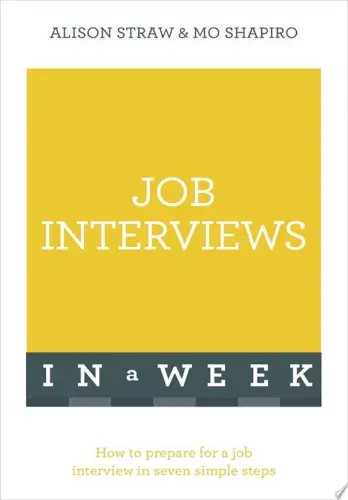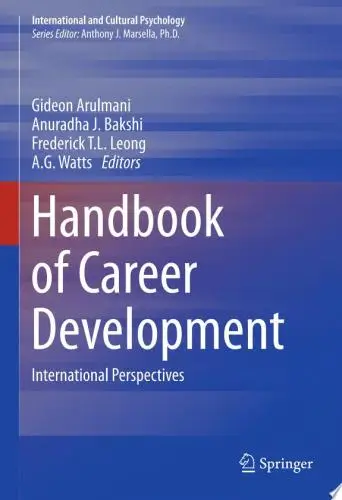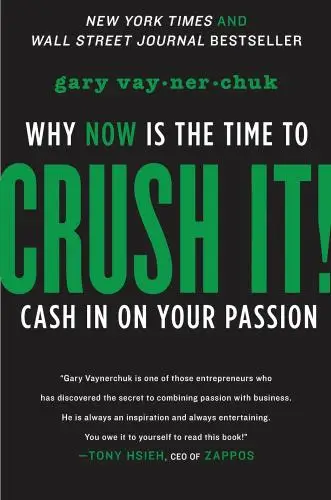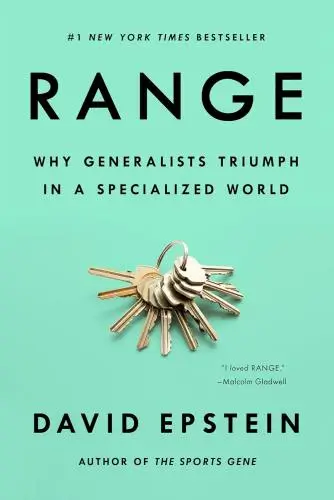Range
Why Generalists Triumph in a Specialized World
What's it about?
Range challenges the conventional wisdom that early specialization is the key to success. Through compelling stories and research, Epstein argues that broad interests and diverse experiences actually lead to greater creativity, innovation, and problem-solving abilities. This book will inspire you to embrace your eclectic interests and pursue a wide range of experiences to truly excel in today's rapidly changing world.
About the Author
David Epstein is a journalist and author known for his insightful exploration of the intersection of sports, science, and performance in his book "The Sports Gene." With a knack for blending storytelling with scientific research, Epstein challenges conventional wisdom and sheds light on the complex factors that contribute to success in various fields. His work offers a fresh perspective on talent, genetics, and the role of deliberate practice in achieving excellence.
10 Key Ideas of Range
Embrace a Broad Learning Curve: The Power of Diverse Experiences
Instead of focusing narrowly on early specialization, engage in a variety of learning experiences.
Diverse skills and knowledge foster creativity and innovation by allowing you to draw connections between seemingly unrelated fields.
This approach builds a more versatile skill set, making it easier to adapt to new challenges and opportunities.
Learn DeeperExplore New Hobbies: Dedicate time each week to try something new, whether it's a cooking class, coding tutorials, or joining a local sports team. This not only broadens your skill set but also opens up new ways of thinking and problem-solving.
Cross-Train Your Brain: Just as athletes benefit from cross-training, your mind does too. If you're in a technical field, read literature or study a bit of art history. If you're in the arts, challenge yourself with puzzles or basic programming. The goal is to engage different parts of your brain and foster unexpected connections.
Seek Diverse Perspectives: Make it a point to have conversations with people from different backgrounds and disciplines. Attend lectures or community events outside of your immediate interests. Listening to diverse viewpoints can spark new ideas and approaches in your own work or studies.
Reflect and Connect: Regularly take time to reflect on what you've learned from these varied experiences. How can the principles of one discipline solve a problem in another? Making these connections consciously will enhance your ability to innovate and adapt.
- Example
A software developer takes up painting and finds that the principles of color theory and composition improve their user interface designs, making them more intuitive and visually appealing.
- Example
A marketing professional joins a community theater group and discovers that acting techniques help them deliver more engaging and persuasive presentations at work.
Cultivate a Growth Mindset: The Key to Unlocking Potential
Adopt the belief that abilities can be developed through dedication and hard work.
This mindset encourages resilience in the face of challenges and motivates continuous learning.
It contrasts with a fixed mindset, which sees talent as innate and immutable, often leading to stagnation.
Learn DeeperReflect on Your Beliefs About Intelligence and Talent: Start by examining your own beliefs. Do you see intelligence as something fixed, or do you believe it can grow with effort? Acknowledging your mindset is the first step towards cultivating a growth mindset.
Embrace Challenges: Instead of avoiding difficult tasks for fear of failure, view them as opportunities to learn and grow. When faced with a challenge, remind yourself that it's an opportunity to develop new skills and understandings.
Learn from Criticism: Constructive criticism can be a valuable tool for growth. Instead of taking it personally, try to see it as feedback on how to improve. Ask questions to deepen your understanding and apply what you learn.
Celebrate Effort, Not Just Success: Shift your focus from praising only achievements to recognizing the effort behind them. This encourages perseverance and resilience, especially when facing setbacks.
Cultivate Curiosity: Stay curious about the world around you. Seek out new experiences and knowledge. This not only enriches your life but also fosters a mindset that is always ready to learn and adapt.
- Example
Imagine you're learning a new language and find it challenging. Instead of thinking, 'I'm just not good at languages,' remind yourself, 'Learning a new language is hard, but with consistent practice, I can improve.' This shifts the focus from innate ability to the power of effort and learning.
- Example
When you receive feedback on a project at work that points out areas for improvement, instead of feeling defeated, ask for specific examples and advice on how to do better next time. Use this feedback as a roadmap for your personal and professional development.
Experimentation Over Early Specialization: Finding Your Fit
Rather than committing to a single path early on, experiment with different interests and disciplines.
This trial-and-error process helps identify where your true passions and strengths lie, potentially leading to more fulfilling and successful career paths that you might not have initially considered.
Learn DeeperExplore Broadly: Dedicate time each week to try something new, whether it's a hobby, reading outside your usual genres, or taking an online course in a field you know little about. This broad exploration can uncover hidden passions or talents.
Reflect on Experiences: After each new activity or learning experience, take a moment to reflect. What did you enjoy? What skills did you use? Understanding what resonates with you can guide your future explorations.
Seek Diverse Opinions: Talk to people in various fields and with different life experiences. Their insights can offer new perspectives and might even spark an interest in areas you hadn't considered exploring.
Embrace Failure as Learning: When trying new things, not everything will be a success, and that's okay. View each failure as a learning opportunity that brings you closer to finding your true fit.
- Example
A software engineer decides to explore her long-standing interest in graphic design by taking a weekend course. She discovers a passion for UI/UX design, blending her coding skills with her newfound design skills to shift into a new career path.
- Example
After years in the finance sector, an individual starts volunteering at a local non-profit on weekends, helping with their accounting and fundraising events. This experience reveals a passion for social impact work, leading to a career transition into the non-profit sector.
The Value of Outsider Perspectives: Innovating from the Edges
Individuals with broad experiences often bring unique perspectives to their fields, challenging conventional wisdom and driving innovation.
Their diverse backgrounds allow them to see connections and solutions that specialists might overlook, highlighting the importance of interdisciplinary thinking.
Learn DeeperDiversify Your Learning: Make it a habit to learn something new outside your primary field of interest or expertise every month. This could be through books, online courses, or even conversations with people from different backgrounds.
Engage in Interdisciplinary Projects: Look for opportunities to work on projects that require collaboration across different fields. This could be within your workplace, in community groups, or through online platforms that bring diverse individuals together.
Practice Lateral Thinking: Set aside time each week to think about problems or projects you're working on from a completely different perspective. Ask yourself, 'How would someone from another field approach this?'
Seek Out Diverse Opinions: Whenever you're faced with a decision or a challenge, actively seek out the opinions of people who might see things differently than you do. This could be through direct conversation, reading widely, or participating in forums and discussion groups.
Reflect on Your Experiences: Regularly take time to reflect on what you've learned from stepping outside your comfort zone. Consider keeping a journal where you can note down insights gained from engaging with diverse perspectives and how they've influenced your thinking or work.
- Example
A software developer interested in improving user experience might take a short course in psychology to better understand how users think and behave, leading to more intuitive software design.
- Example
A marketing professional could volunteer in community development projects to gain insights into different socio-economic backgrounds, enriching their approach to market segmentation and communication strategies.
Delayed Concentration: A Strategy for Greater Success
Postpone narrowing your focus until you've explored a range of subjects and found what truly resonates with you.
This approach can lead to more informed decisions about your career and life direction, ensuring that when you do specialize, it's in an area where you're both passionate and effective.
Learn DeeperExplore Broadly Before Narrowing Down: Spend time learning about various fields, hobbies, and disciplines. This could mean taking online courses, attending workshops, or reading books outside your current area of expertise.
Reflect on Your Experiences: Regularly take stock of what you've learned and how you felt about those experiences. Identify patterns in what engages and excites you versus what feels draining or uninteresting.
Seek Diverse Opinions: Talk to people with different careers, backgrounds, and life paths. Understanding their journeys can provide insights into what might resonate with you.
Experiment with Side Projects: Start small projects or side hustles in areas that interest you. This hands-on approach can reveal a lot about where your passions and strengths lie.
Delay Specialization: Resist the pressure to quickly choose a niche or career path. Allow yourself the time and space to explore and discover what truly suits you before making significant commitments.
- Example
A software engineer spends her weekends attending art classes and realizes she has a passion for digital design. She starts taking on small freelance projects combining her coding skills and her new interest in design, eventually transitioning to a career in UI/UX design.
- Example
After years in the finance sector, an individual begins volunteering at environmental organizations and discovers a deep interest in sustainability. He then decides to pursue a master's degree in environmental science, shifting his career towards environmental policy.
Deeper knowledge. Personal growth. Unlocked.
Unlock this book's key ideas and 15M+ more. Learn with quick, impactful summaries.
Read Full SummarySign up and read for free!
Range Summary: Common Questions
Experience Personalized Book Summaries, Today!
Discover a new way to gain knowledge, and save time.
Sign up for our 7-day trial now.
No Credit Card Needed

Similar Books

The Decision Book
Mikael Krogerus
This is Going to Hurt
Adam Kay
The ^AOxford Handbook of Job Loss and Job Search
Ute-Christine Klehe PhD
Job Interviews For Dummies®
Joyce Lain Kennedy
Job Interviews In A Week
Alison Straw
Handbook of Career Development
Gideon Arulmani
The Company She Keeps
Georgia Durante
The Millionaire Fastlane
MJ DeMarco
Losing My Virginity
Richard Branson
Crush It!
Gary VaynerchukTrending Summaries

Peak
Anders Ericsson
Never Split the Difference
Chris Voss
Smart Brevity
Jim VandeHei
The Psychology of Money
Morgan Housel
The First 90 Days
Michael D. Watkins
Atomic Habits
James Clear
Thinking, Fast and Slow
Daniel Kahneman
The Body Keeps the Score
Bessel van der Kolk M.D.
The Power of Regret
Daniel H. Pink
The Compound Effect
Darren HardyNew Books

Forex Trading QuickStart Guide
Troy Noonan
Comprehensive Casebook of Cognitive Therapy
Frank M. Dattilio
The White Night of St. Petersburg
Michel (Prince of Greece)
Demystifying Climate Models
Andrew Gettelman
The Hobbit
J.R.R. Tolkien
The Decision Book
Mikael Krogerus
The Decision Book: 50 Models for Strategic Thinking
Mikael Krogerus
Fichte
Johann Gottlieb Fichte
Do No Harm
Henry Marsh

